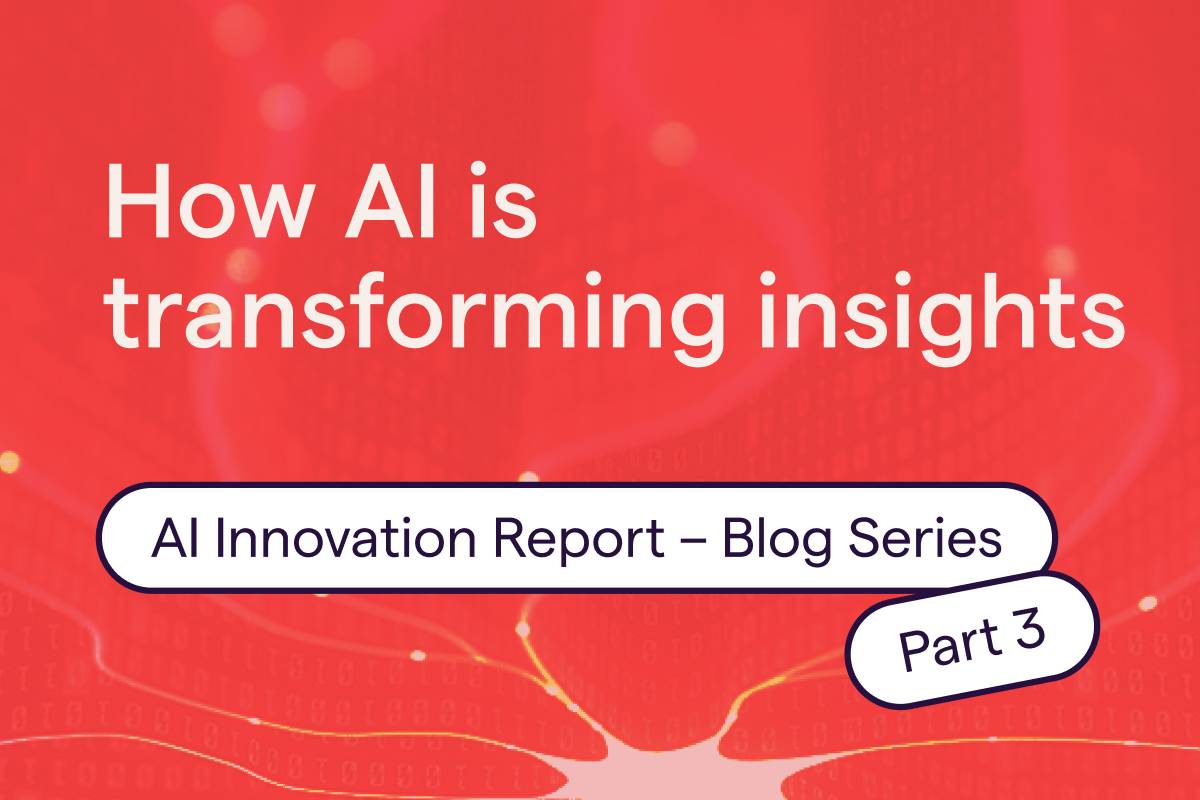Artificial intelligence (AI) and generative AI are fast permeating research, data, and insights — with machine learning and Large Language Models (LLMs) transforming survey research, qualitative analysis, social media listening, data analytics, and knowledge management.
This AI revolution is making it easier for anyone across the research and insights ecosystem — whether a tenured expert or a complete novice — to access knowledge and data, design research studies, and analyze results.
But the ‘democratization’ of insights that is enabling a wider group of business users to conduct their research and insights work, is seen as a double-edged sword.
On one hand, specialist teams have finite resources; equipping stakeholders with ‘self-service’ tools removes bottlenecks and helps increase customer or consumer-centric planning. On the other hand, there is a risk that those without sufficient skills and experience may create flawed research designs or misinterpret data.
How might this balance be impacted by AI? What changes will AI bring to insights management in enterprise organizations?
Market Logic Software commissioned Insight Platforms with a comprehensive survey of companies with more than 1,000 employees to shed some light on this question. Completed by over 200 insights managers and stakeholders, the survey points to intriguing directions the future may take.
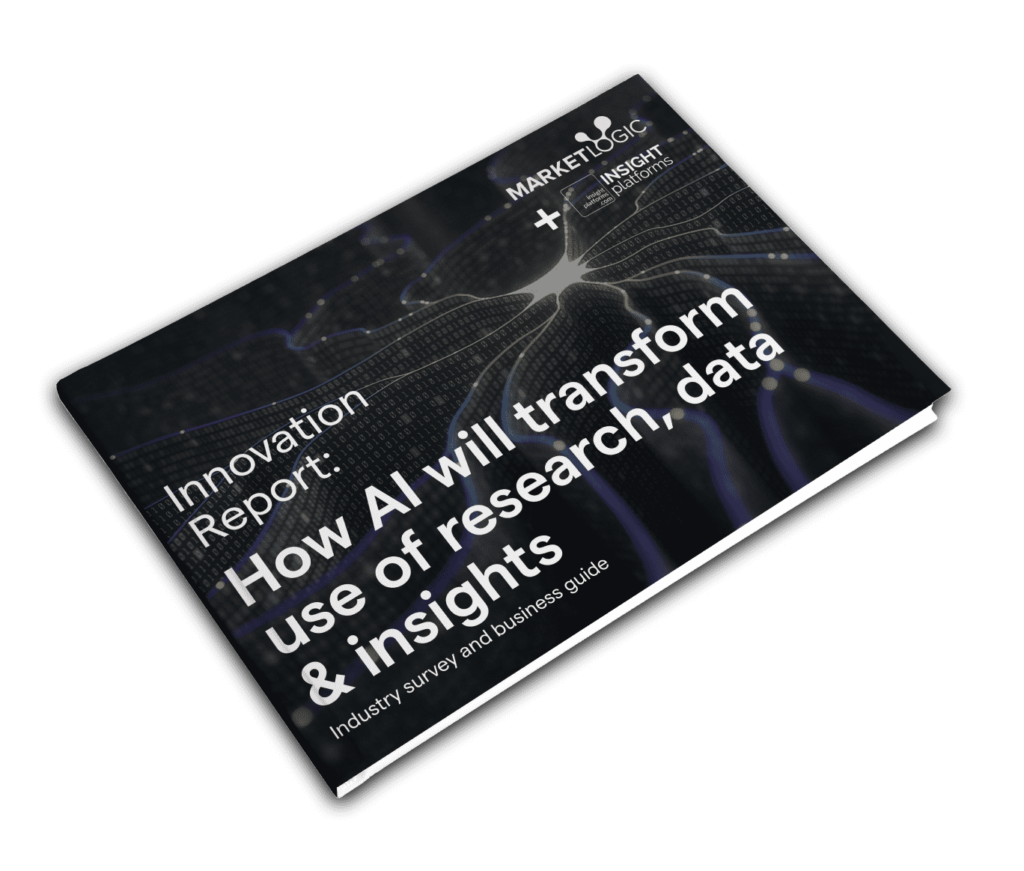
With or without the tech, AI insights management is democratizing
Business users — in teams spanning marketing, product management, strategy, and others — already undertake a wide range of research and insights activities.
The most common are searching for knowledge and data (91% of stakeholders), creating reports (90%), and analyzing surveys or qualitative data (80% to 85%):
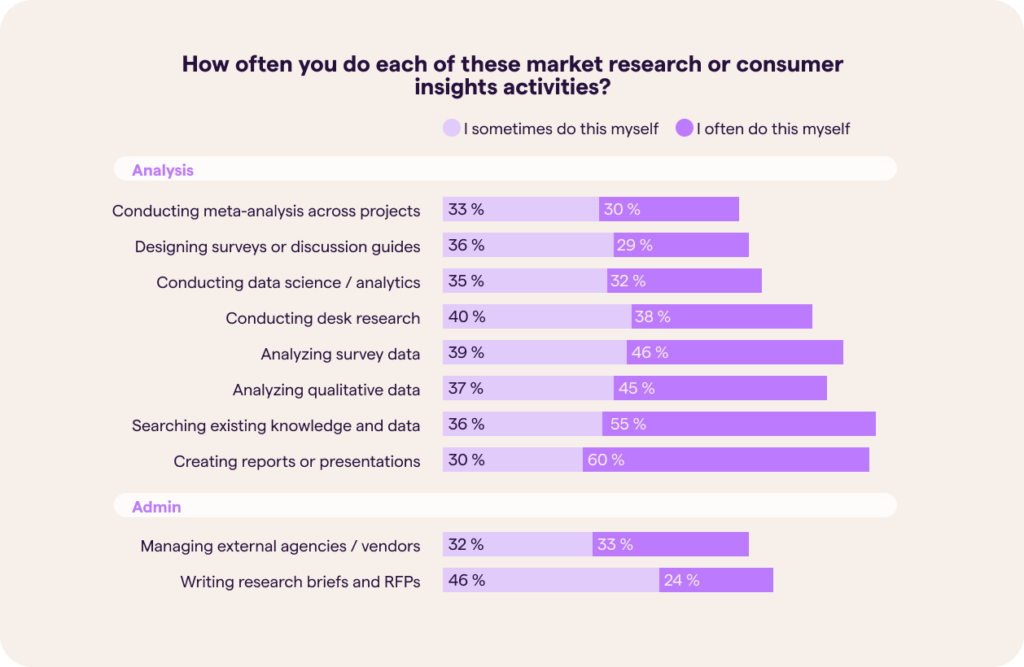
When we look at the impact of AI on insights management, we should be aware that the democratization train left the station some time ago, and self-service is now a widely established model in many organizations.
AI in insights management will further devolve within the enterprise
Three-quarters of stakeholders are positive about AI’s impact on research and insights in their organization:
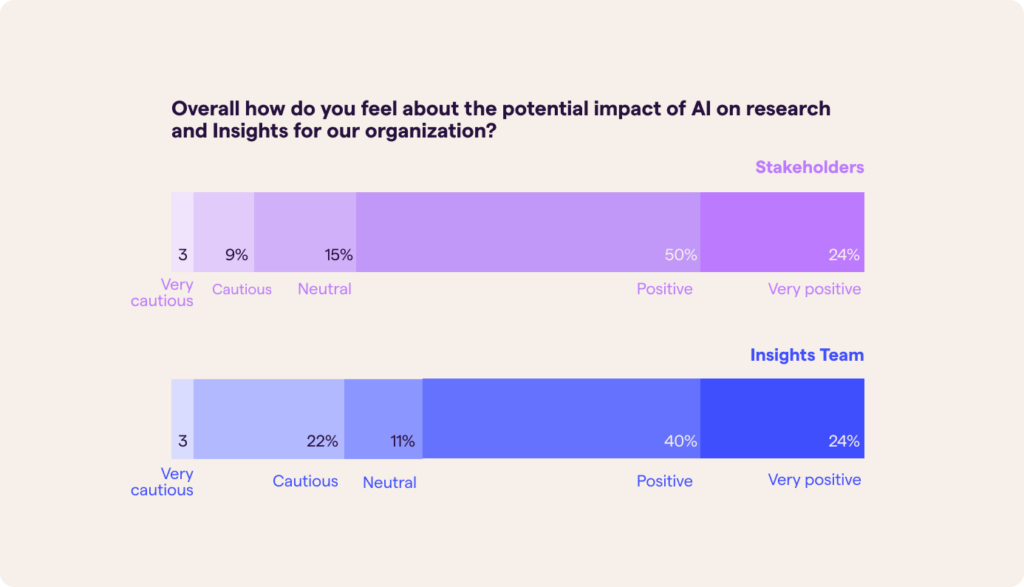
In fact, many stakeholders in insights management are already using AI-enabled software to conduct their own research and insights work. The biggest impact so far has been in the analysis of survey data (30% of stakeholders) and searching for knowledge (26%).
But most stakeholders confidently predict a significant increase in their use of AI for a broad range of insights-related activities, from analyzing qualitative research to conducting data science and analytics work.
Using AI for market research and consumer insights can offer a wide range of benefits that can significantly enhance decision-making and strategy development for businesses.”
Business User
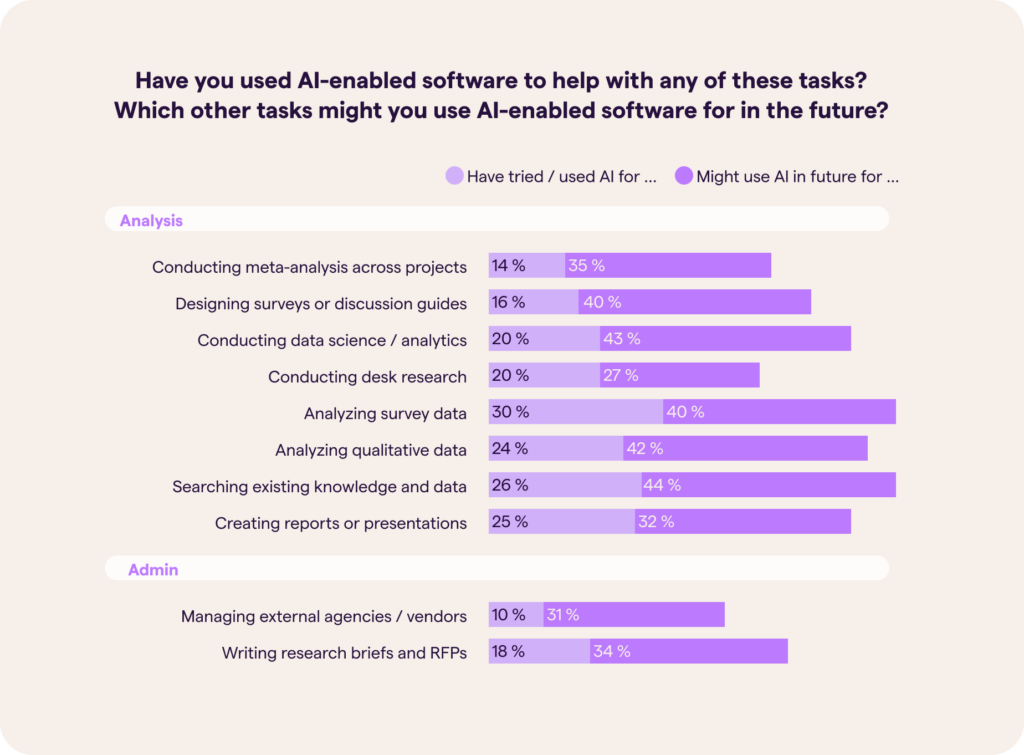
This enthusiasm for the benefits of AI in insights management and research presents significant opportunities and challenges.
As more teams leverage AI to engage with research and insights, the volume of evidence-based decisions should increase — and organizations should become more responsive to the needs of their customers, consumers, and users.
However, a sizeable minority (25%) of insights teams are cautious about the potential effects of AI. This group is particularly concerned about the accuracy of AI outputs and the risk that quality standards may be compromised as more people use AI tools to conduct their own research and insights work.
I think it will cause some friction between people that are willing to change and learn how to work with AI and those that are scared and unwilling to change.“
Insights Teams
How should you adapt your insights management practices for the age of AI?
Whether you’re enthusiastic or skeptical at the prospect of increased democratization, you can’t afford to ignore the shifts in behavior brought by AI in insights management.
It seems inevitable that stakeholders will be empowered by AI to manage more of their own insights workflow. But two other — perhaps surprising — findings are also important to factor in:
- 74% of stakeholders believe that AI will increase their organization’s overall demand for research and insights
- 55% of stakeholders expect that AI will increase the level of support they need from their insights colleagues in the future

Taken together, these data points suggest a number of insights management strategies that leaders can adopt:
- Engage early with stakeholder teams: Define a democratization roadmap that helps to optimize new AI capabilities whilst mitigating any risks associated with data accuracy or interpretation
- Define the future roles for insights experts: As underpins ever more self-service, research, and insights experts will need to pivot to more advisory roles that help business users design, analyze, and interpret data effectively
- Build the positive business case proactively: AI’s perceived efficiencies will increase expectations that insights teams can “do more with less”. But if overall demand for insights increases, teams will need to retain headcount even as they transform the roles and skills of team members. Start building the business case for that transformation today with the right strategy and tools.
As we move further into the era of AI, insights management will undoubtedly continue to change: increased democratization, greater reliance on advisory expertise, and, as seems likely, growth in overall demand for research and insights. Navigating these changes will be one of the key challenges for insights leaders in the years ahead.
Don’t miss part 1 and part 2 of our four-part installment series on AI Innovation, where we cover attitudes toward AI and adoption trends. Stay tuned for part four!
